5 Common Diseases Caused by Mosquitoes
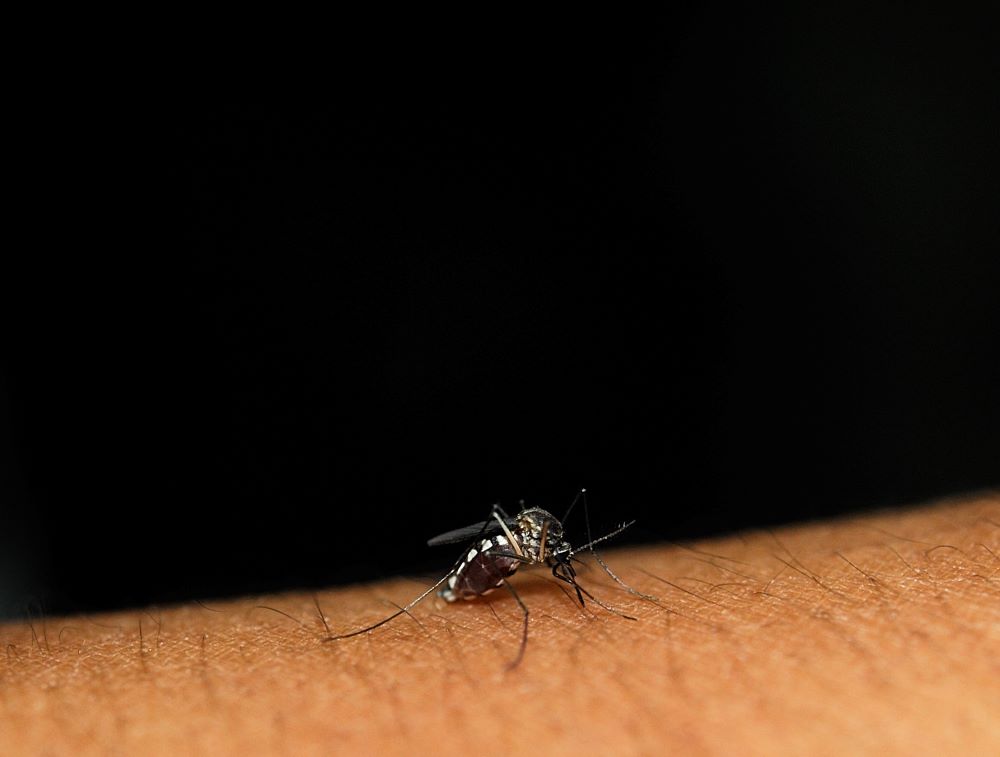
Any disease spread by a bite of an infected mosquito is known as a Mosquito-Borne Disease. According to the World Health Organisation, such diseases are typically found in tropical and subtropical regions. Various illnesses can be inflicted on a person when mosquitoes bite them.
A mosquito bite can cause a mild or persisting illness in most cases. However, it can infect over 500 million people and generate approximately 1 million deaths annually. Diseases caused by mosquitoes are generally Dengue, Malaria, Chikungunya, etc. Continue reading the article to learn about the symptoms and treatment methods of the diseases.

Table of Contents

What Are Mosquito-Borne Diseases?

During blood meals, mosquitoes also ingest these viruses or parasites that live within the blood. Such pathogens are transferable to another person when the mosquito bites in the form of saliva.
Whenever any disease spreads from a mosquito to a human (or other animal), it is called a “mosquito-borne disease.” However, mosquitoes may not be affected, while humans suffer extremely from these mosquito-borne diseases.
What are the Causes of Mosquitoes Diseases?
Viruses, bacteria, or parasites are the major cause of mosquito-borne illnesses. These small bugs thrive and breed fast in warm, damp places with still water. Bad sanitation, poor drainage, and city growth help mosquitoes spread. Human actions, like cutting down forests and changing the climate, also boost mosquito numbers.
The illnesses they spread, such as malaria, dengue, and Zika, create big health problems in hot and humid areas. We need good control methods to teach people about the risks of stopping these mosquito-spread diseases.
What Are the Prominent Mosquito-borne Diseases?
These diseases can vary in severity and impact, but they pose significant health risks. Following is a list of 5 diseases caused by mosquitoes that can cause death:
1. Dengue
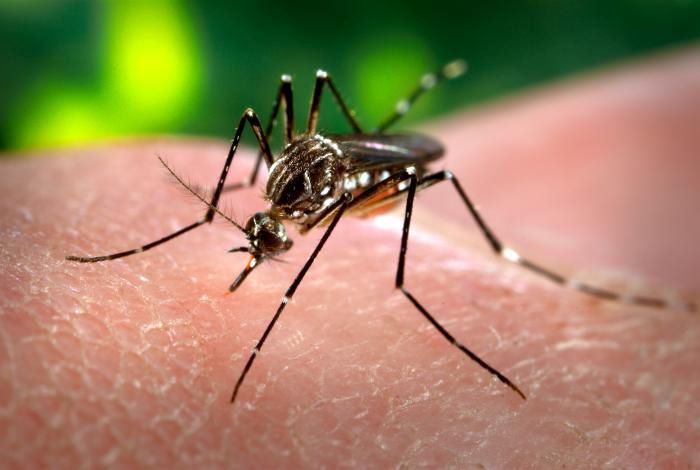
Female mosquitoes from the species Aedes aegypti primarily spread the dengue virus. The symptoms may take 3 to 14 days to appear, and recovery takes 2 to 7 days. However, some people can also develop a severe version of dengue fever, dengue hemorrhagic fever. In such a case, the fever may prevail longer and require hospitalisation.
Symptoms
- High fever and vomiting
- Joint and bone pain, muscle pain and headache
- Skin rashes
- Bleeding from nose and underneath the skin (in dengue hemorrhagic fever)
Treatment
You can treat dengue by increasing fluid intake, staying hydrated, and thorough medication. Doctors treat these illnesses by easing symptoms. They give pain drugs like acetaminophen, make sure patients drink enough, and watch for dangerous problems.
2. Malaria
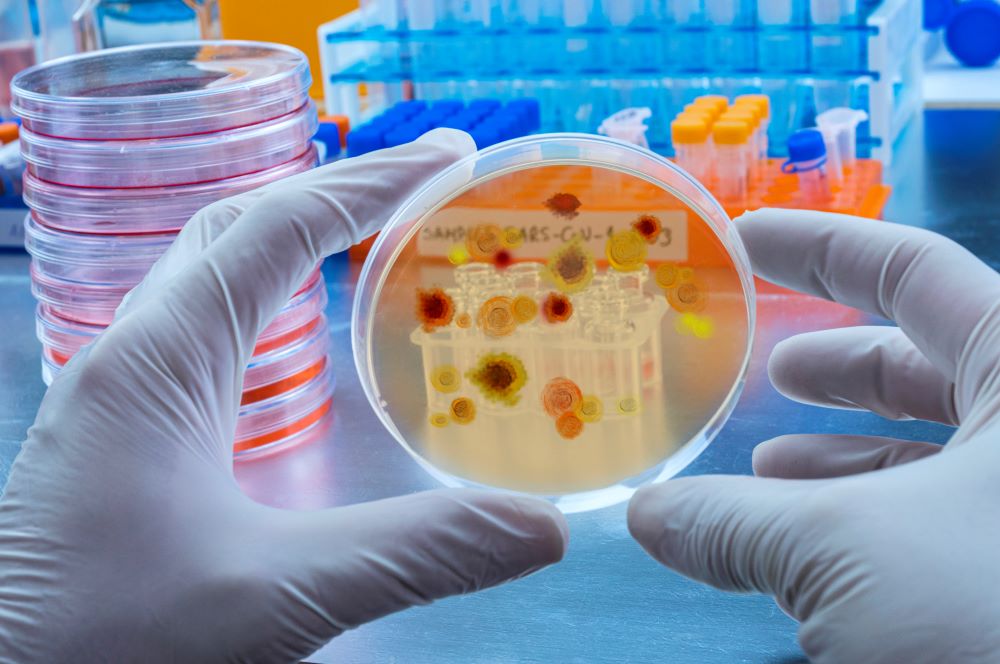
Malaria is one of the deadliest diseases caused by mosquitoes developed from Plasmodium vivax. Anopheles mosquitoes spread this disease after being infected by the parasite Plasmodium. This parasite grows cumulatively in your liver and affects your red blood cells. Fever can rise to 105 degrees Fahrenheit due to malaria.
Symptoms
- High fever, sweat and chills
- Headache and muscle pain
- Abdominal pain and diarrhoea
- Vomiting
- Nausea
Treatment
You can treat malaria with anti-malarial drugs and other medicines for fever. Doctors use antimalarial drugs such as chloroquine, artemisinin-based combination therapies (ACTs), or other medications specific to the region to treat the infection.
3. Chikungunya
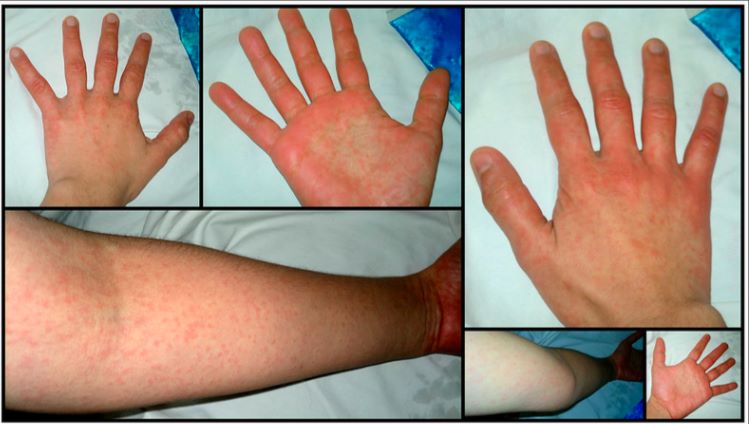
Another mosquito-borne disease is chikungunya, spreading through Aedes aegypti and Aedes albopictus species. Mostly it starts healing within a week, but sometimes the symptoms may last longer. It also sometimes gets misdiagnosed for having similar symptoms of dengue and Zika.
Symptoms
- Fever and tiredness
- Joint swelling and pain
- Headache
- Muscle pain
- Body rashes
Treatment
You must drink a lot of water and stay hydrated to treat chikungunya. Also, you require a thorough diagnosis to recognise the misleading symptoms. Doctors use antimalarial drugs such as chloroquine, artemisinin-based combination therapies (ACTs), or other medications.
4. Japanese Encephalitis
Japanese Encephalitis is another disease caused by mosquito bites. Culex mosquito carries the JE virus that develops in marshes, stagnant water around plants, and flooded paddy fields. This virus typically attacks the human brain and spinal cord, and the symptoms are mild and can cause severe neurological damage or death.
Symptoms
- Headache
- Fever and trembling
- Episodic paralysis and neck stiffness
- Vomiting
- Nausea
- Confusion
Treatment
There is no such treatment for Japanese Encephalitis. You can only prevent this disease by vaccination and protecting yourself from mosquito bites. Treatment can only mitigate the symptoms if you get infected by this disease.
5. Zika
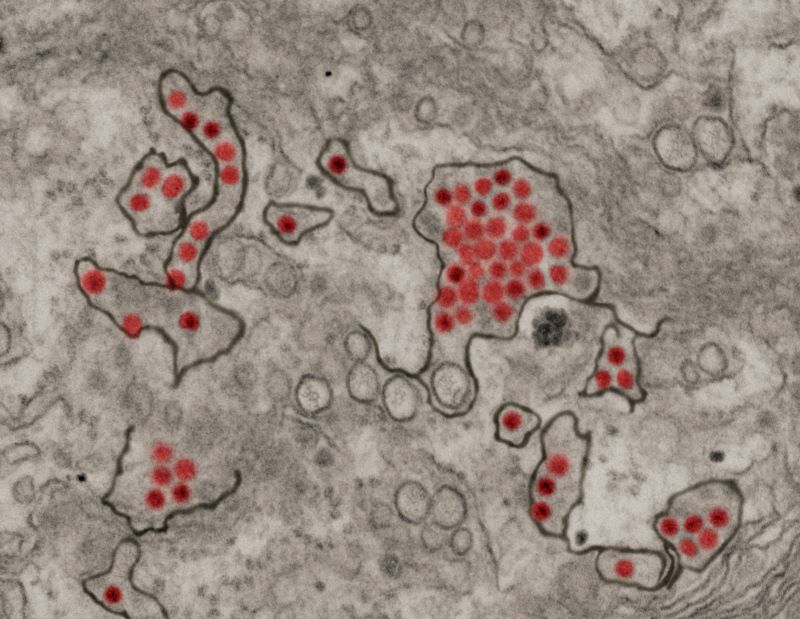
Zika is another type of virus that causes diseases spread by mosquitoes. The Aedes albopictus species of mosquito usually transmit this virus. The symptoms of Zika occur from 2 to 14 days after the mosquito bite and last for nearly a week. Similar to dengue and chikungunya, no targeted treatment exists.
Symptoms
- Mild fever and fatigue
- Joint and muscle pain, especially in the arms or feet
- Headache and eye pain
- Conjunctivitis
- Abdominal pain
- Rashes
Treatment
Zika virus has no treatment or vaccination. However, you can treat the symptoms, increase fluid intake, avoid dehydration, and take rest. Doctors provide care to help patients, which includes rest, fluids, and pain management.
Signs and Symptoms of Diseases Caused by Mosquitoes
Mosquito-borne illnesses can manifest in many ways, from minor to major symptoms. You need to spot these signs to treat these diseases well and prevent their worsening.
- High Temperature: High fever is a common sign of mosquito-borne infections like malaria, often accompanied by chills. Spiking high temperatures mark this condition as an intermittent or continuous fever.
- Severe Ache in the Head: Headaches are usually felt behind the eyes and are common in diseases such as dengue fever. This ache can become extremely painful and may be coupled with signs such as fever and skin rash.
- Pain in Muscles and Joints: In conditions like dengue and chikungunya, muscle and joint pain can be excruciating. It might last for months or even weeks. This condition indicates a major situation like joint pain.
- Nausea That Causes Vomiting: Conditions such as dengue or the Zika virus cause feeling sick, followed by vomiting; hence, dehydration occurs. This symptom commonly comes along with general malaise and fever.
- A Skin Disease Characterised by Eruptions of reddisAntance, an itchy skin rash can develop either dengue or Zika virus infection. The rashes may appear as spots or generalised rashes in various body areas.
- Yellowing of the Skin due to Liver Involvement: As a result, yellow skin (jaundice) is observed in disease entities like yellow fever that involve the liver. If accompanied by abdominal pain and nausea, this condition indicates a serious situation.
Risk Factors Associated With Diseases Caused by Mosquitoes
Mosquito-borne illnesses represent significant health risks due to the peculiarities of certain regions and popuTo avoid getting infected with these ailments; it is necessary to consider all major risk factors.
How is Mosquitoes Disease Diagnosed?
Mosquito-borne diseases are diagnosed through a combination of clinical evaluation and laboratory tests. Accurate and timely diagnosis is crucial for effective treatment and preventing severe complications. Below are ten diagnostic tests commonly used to identify these diseases.
What Are the Preventive Measures Required to Safeguard from Mosquito-Borne Diseases?
You can prevent mosquito-borne diseases through several measures. Below are some of those measures -
- Dengue and malaria tend to spread during the monsoon in tropical regions. Full-sleeved clothing and using mosquito repellents may help prevent mosquito bites.
- Stagnant dirty water is an ideal place for mosquito breeding. So do not let contaminated water stand around your habitat.
- You must prevent mosquitoes from entering your house.
- Keep your surroundings clean and spray pesticides regularly.
- Netting over your bed before going to sleep helps prevent mosquito bites.
- Avoid staying outside in dusk and evening when mosquitoes are most active.
- Opt for a healthy and balanced diet to increase your immunity
These are the most common diseases caused by mosquitoes in India and Southeast Asia. The dengue epidemic has become more frequent since the 90s. Whereas India accounts for 77% of total malaria cases in Southeast Asia.
The primary reason for such epidemics is a lack of knowledge and awareness. However, you can prevent such epidemics by taking the responsibility and following simple measures mentioned above.
Does Health Insurance Cover Disease Caused by Mosquitoes?
Different health insurance policies accommodate diseases caused by mosquitoes, depending on the kind of coverage, geographical location, and specific disease in question. In general terms, most comprehensive health insurance plans include a section that deals with treatment for insect-borne diseases, including malaria, dengue, and Zika, which are considered medical conditions requiring immediate attention.
However, the degree of coverage may vary depending on policy details; some may offer more extensive hospitalisation benefits while having reduced payments for outpatient services or preventive services.
Mosquito-borne diseases are very important for public health protection. Early identification of symptoms, proper therapy-seeking behavior, and effective ways of preventing complications can minimise the chances for severe outcomes. Progressing research concerning diagnosis and treatment options provides hope for better management or even eradicating mosquito-associated diseases.














